 I'd had it on good authority that 'My Architect' was a better film than 'Sketches of Frank Gehry', so I bumped it to the top of my Amazon DVD rental list.
I'd had it on good authority that 'My Architect' was a better film than 'Sketches of Frank Gehry', so I bumped it to the top of my Amazon DVD rental list.I wasn't misinformed.
'My Architect' isn't just a documentary about an architect: it's a detective story, a family drama, an investigation of the enigmatic, a celebration of the eccentric. It's a film of great beauty, and incredibly moving.
Nathaniel Kahn opens the film with a contemporaneous newspaper report of his father, architect Louis I. Kahn's death from a heart attack at Pennsylvania Station in 1973. The article states that he is survived by his wife and daughter. "When I first read that obituary, I must admit that it was looking for my own name," he opines; "I was his child, too. His only son." Making no bones about his father's extra-marital activities, Nathaniel reveals that Louis flitted between three families. But there is no judgementalism here: Nathaniel's film is driven by a genuine and poignant desire to find out more, to become closer to, a man who died when he was just eleven.
(A brief digression: being English, I tend to refer to people by their surname in these reviews [ie. Kinski responds well to Herzog's direction, never mind that they almost killed each other]; here, however, "Kahn" could refer to either director/son/narrator or architect/father/subject, which leaves me the option of turgidly alternating between L. Kahn and N. Kahn, or using first names. The latter, while familiar, is easier.)
Nathaniel tracks down people who commissioned, worked with - or, in the case of Edmund Bacon, opposed - his father. Bacon was the driving force behind the redevelopement of downtown Philadelphia in the 50s and 60s. Nathaniel interviews him, a crotchety and opinionated old man, in the middle of a Philadelphian sidewalk. Bacon trashes Louis's conceptions for the re-imagined city, including circular car parks on the outskirts of the city centre to encourage pedestrianism. Demonstrating an incredible degree of patience and good grace for a man forced to listen to his father being slagged off, Nathaniel asks, "Ultimately, isn't it two strong men, two strong egos, that don't get along?"
"Godammit, no!" Bacon yells, balling one hand into a fist and pounding the palm of the other hand. "It's absolutely pure damn ignorance on Lou's part. The same damn ignorance that the American Institute of Architects is based on now ... You simply have not understood a word I've said."
In one respect, this is a phlegmy-voiced old guy throwing his toys out of the pram. In another, it's the documentary film's equivalent of "Funny how?" in 'Goodfellas' or "You fairy, you company man" in 'Glengarry Glen Ross', a moment of such fuck-you intensity that you only need to see it once and your jaw drops as it burns itself into your cultural memory.
At the other end of the spectrum there's Nathaniel's visit to Robert Austin Boudreau, captain and conductor of the American Wind Symphony Barge, an astounding nautical creation which is half boat half concert stage. A vessel that takes classical music to any venue it can moor at. Initially somewhat truculent, Boudreau's reaction on learning that Nathaniel is Louis's son is one of the most emotional onscreen moments I've seen in a long time. "I saw you at the wake," Boudreau recollects, visibly affected. "I saw you with your mother." He stumbles forward to hug Nathaniel. "You are Lou."
And then there's the buildings themselves ... oh, sweet lord, the buildings. Architecture as art. Form, structure and the play of light achieving harmony. Can a building be described as spiritual, as transcendental? On the basis of Louis's work, I'd say yes. Certainly Nathaniel is justified in using Beethoven's Ninth on the soundtrack for the Kimbell Art Museum sequence. His unbridled delight at his father's genius is as it should be, but it's also tempered by a remarkable scene, earlier on, where he visits the Richards Medical Research Building (Louis's only major project in Philadelphia) and admits to a sense of disappointment. Moreover, interviews with staff reveal that it's not a great place to work.
The Salk Institute for Biological Studies in California, however, is a truly breathtaking creation, presenting each researcher who is based there "with a study with an unrestricted view of the Pacific Ocean".
The last quarter of the documentary, comprising two sections entitled "Family Matters" and "The End of the Journey", integrate as fully as possible with Louis Kahn the man - his juggling of three families, his absolute dedication to his work; a muted but touching reunion between Nathaniel and his stepsisters; an assessment of Louis's legacy and the deeply held beliefs that formed it. Here we have the beating, aching heart of the film (the testimonies of Indian architects B.V. Doshi and Shamsul Wares, in respect of the Indian Institute of Management and the Capital of Bangladesh, are emotional suckerpunches); this is the human element which makes 'My Architect' essential viewing, even if your interest in buildings and their design is non-existent.
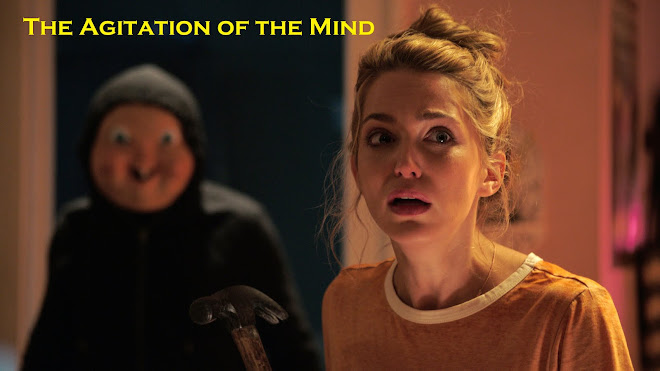
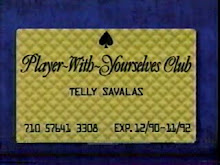
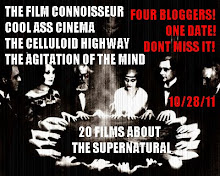
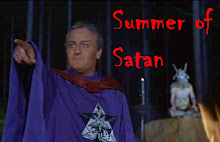
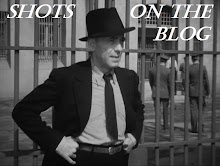










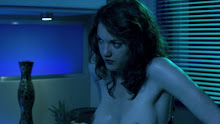
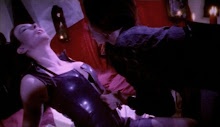





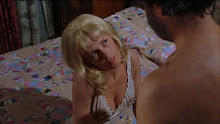
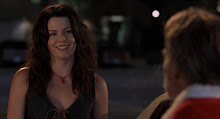








No comments:
Post a Comment